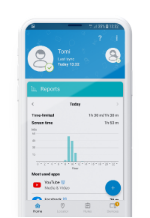Fake news, in various forms, has been around as long as news itself. It’s a serious problem but there is also a light side. Have a look at this April Fool’s Day hoax from 1957. Think about this – a well-respected national broadcaster, in a more conservative time, used a serious current affairs show (Panorama) to play a joke on British citizens.
Fake news now
The internet is a wonderful resource: we now have a wealth of information at our fingertips with the potential to bring the world together. However, as many recent events around the globe have shown, it can also be used to sow misinformation and divide people. Individuals, groups and even nations are suspected of spreading lies and propaganda to weaken their opponents.
Information – the online deluge
Many people struggle to identify real news amongst propaganda and fake news. For example, fake news has been linked to major political developments in the US and the UK. More recently, the increase in the number of parents refusing to vaccinate their children against contagious diseases has been linked to social media groups spreading unsubstantiated and false information about the safety of vaccines.
Social networks, antisocial news?
There’s also a middle ground of conspiracy theories that might not be immediately dangerous but certainly aren’t helpful. Do some people really believe the Earth is flat? There are many social media users trying to convince others of some absurd notions.
Social media websites have been criticized for doing too little too late in combating fake news. There are growing calls for social networks to be held responsible for content that appears on their websites. The logistics and legal technicalities might mean this will take some time, so users need to be able to determine right from wrong themselves. It’s difficult enough for grown-ups to identify fake news: how can children do it? Teens are especially vulnerable as they are more likely to rely on social media for news.
Of course, it’s not just news. There are people online looking to deceive others for a number of reasons. While fake news associated with political campaigns is high profile, what about commercial motives? Is a seemingly neutral article actually trying to persuade you or your child to buy a particular product, watch a TV show or follow an influencer?
A child’s perspective
Without patronizing them or underestimating their abilities, children are easily impressed. Their desire to belong to a crowd, to ‘fit in’ can lead them to accept things that grown-ups identify as obviously wrong. If a child hears someone telling a story in the street would they automatically believe it? We hope not. Yet, we need to teach children that the same attitude applies when online. Just because something appears on the internet, it doesn’t make it true.
Media literacy and critical thinking has always been important, but they are essential these days due to the proliferation of news sources. Quantity might have increased but quality is another matter.
Things to think about
How can we help children identify real, unbiased news, paid for content and outright fake news? As they grow up teach them to consider these points:
- Does the piece of news have an identifiable author? Can the person or media be trusted?
- Are other reliable sources reporting this news?
- Does the news seem plausible?
- Who paid for this news? Who gets paid if you click on it?
- Who might benefit from or be harmed by this news?
- Is the news complete? What is left out of the message that might be important?
Identifying fake news is not an easy task and even experts struggle sometimes when trying to distinguish between good and bad information. However, learning to ask the right questions is crucial and will only become more important in the future. Therefore, parents should take the time to explain this to their children, leading them to become smarter and stronger by sticking to the facts.


